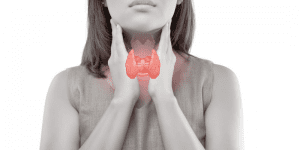If you’re a woman over 40 and want to get pregnant, you may already have fertility worries. However, having interstitial cystitis may make you worry even more.
What is Interstitial Cystitis?
Interstitial cystitis or IC is a chronic medical condition that affects women. It can cause pain that comes and goes in the bladder and general pelvic area. Commonly, it can also lead to pain during urination and a sense of urgency to urinate and may cause you to go frequently.
Although this condition can cause inflammation of the bladder, bleeding and scarring, it’s not the same thing as a urinary tract infection or UTI, which is a bacterial infection. Unlike a UTI, it is not treated with antibiotics and cannot be cured with them, either.
Facts About Interstitial Cystitis
It is estimated that around 700,000 Americans have interstitial cystitis and that 90% of them are women who are at least 40 years old. While the condition is not as common as UTI, it doesn’t spread or worsen over time. Likewise, it does not cause bladder cancer.
Additionally, even though more research is required to definitively rule it out, interstitial cystitis doesn’t seem to affect a woman’s fertility or the baby in the case of pregnant women. While some women who get the condition see an improvement in their symptoms during pregnancy, others may see their symptoms vanish altogether. Still, other women may suffer from even worse symptoms after they become pregnant.
What Are the Symptoms?

Usually, the symptoms of interstitial cystitis are worse during your menstrual period. They can range from mild discomfort to intense pain concentrated on the bladder and pelvic region. Symptoms of interstitial cystitis include the following:
- Changes in intensity when the bladder fills up or empties
- Frequent urination
- Glomerulations or bleeding caused by irritation on the wall of the bladder
- Irritated, scarred or stiff wall of the bladder
- Pain during sexual intercourse and other sexual activity
- Ulcers on the wall of the bladder
- Urgency to urinate
There are some symptoms that can occur that are rarer. They include the following:
- Allergic reaction
- Gastrointestinal problems
- Migraine
- Muscle and joint pain
The condition is often associated with the following ailments:
- Fibromyalgia
- Irritable bowel syndrome
- Vulvar vestibulitis
How is Interstitial Cystitis Treated?
There is no known cure for interstitial cystitis. Unfortunately, although there are treatments available for the condition, it’s difficult to treat. Treatments that aim to relieve the symptoms, discomfort or pain include the following:
- Bladder instillation: This treatment is also known as a bladder wash. Medication is administered directly to the bladder for a short time and then drained using a catcher.
- Bladder training: This treatment aims to help the body void at various times while gradually lengthening the amount of time that you can hold urine.
- Diet modification: Eliminating certain foods from your diet may alleviate some of the symptoms of interstitial cystitis.
- Smoking cessation: Quitting smoking can help relieve your symptoms and prevent other problems such as your risk of bladder cancer. It’s also better for your health, in general, and is beneficial if you plan to become pregnant.
- Surgery: Minimally invasive surgery to remove ulcers from the bladder is a treatment that’s used when others haven’t helped.
- Transcutaneous electrical nerve stimulation: Also known as TENS, this treatment uses mild electrical pulses to block pain from your pelvic area.
If you have interstitial cystitis, all hope isn’t lost. You can find relief from your pain, and the condition does not affect your fertility. As a result, you can go on to have the baby you’ve always wanted.





